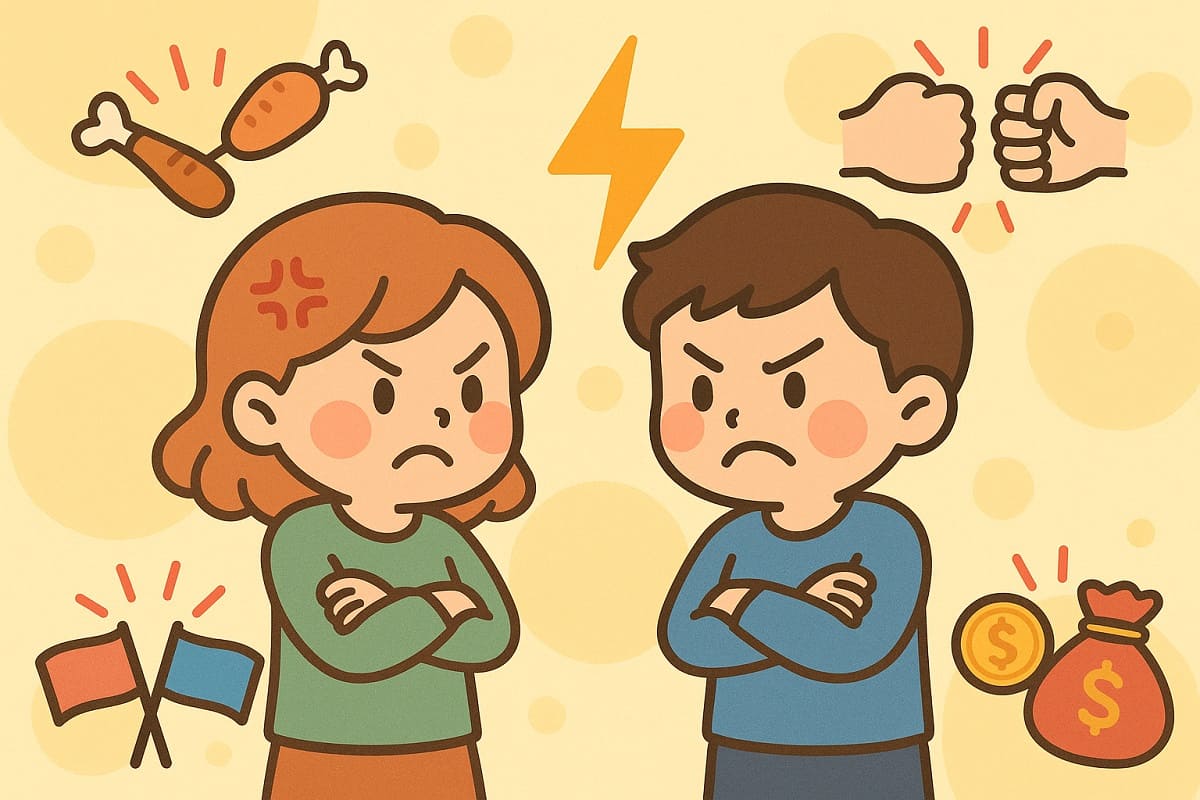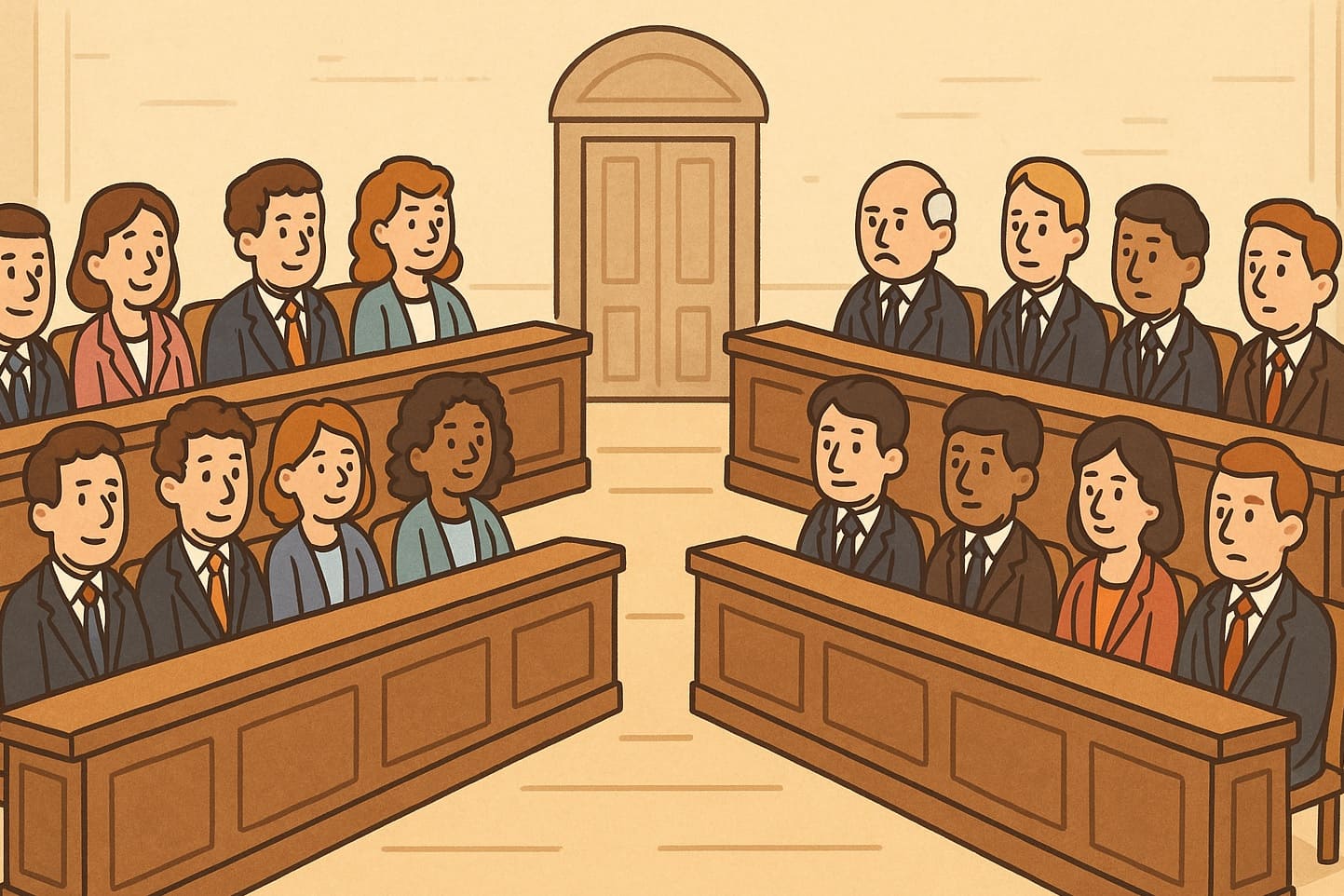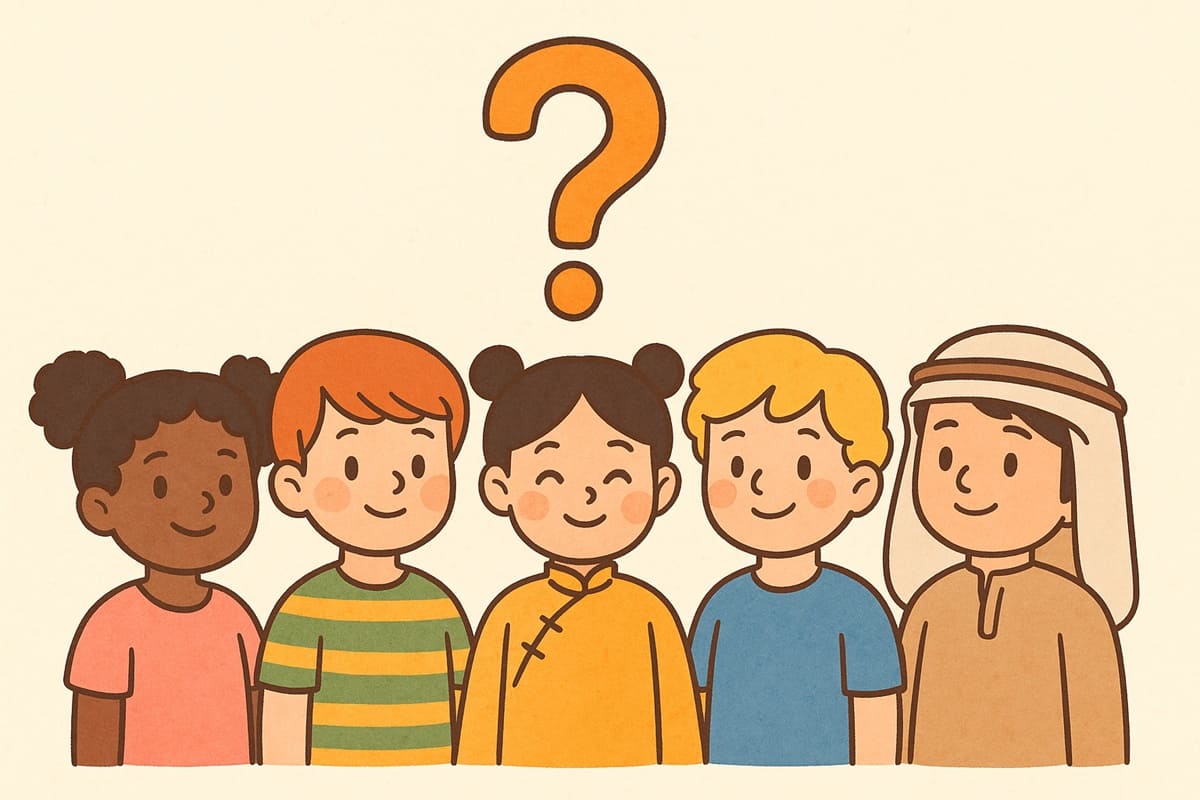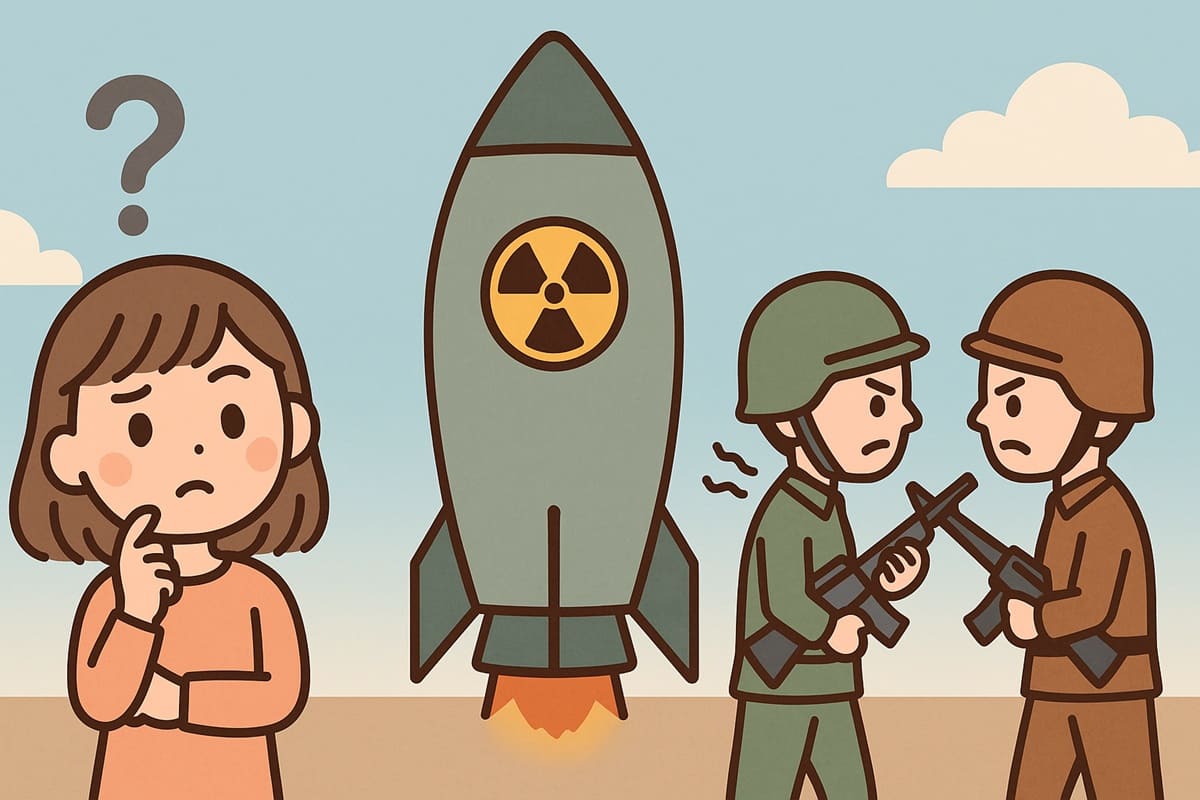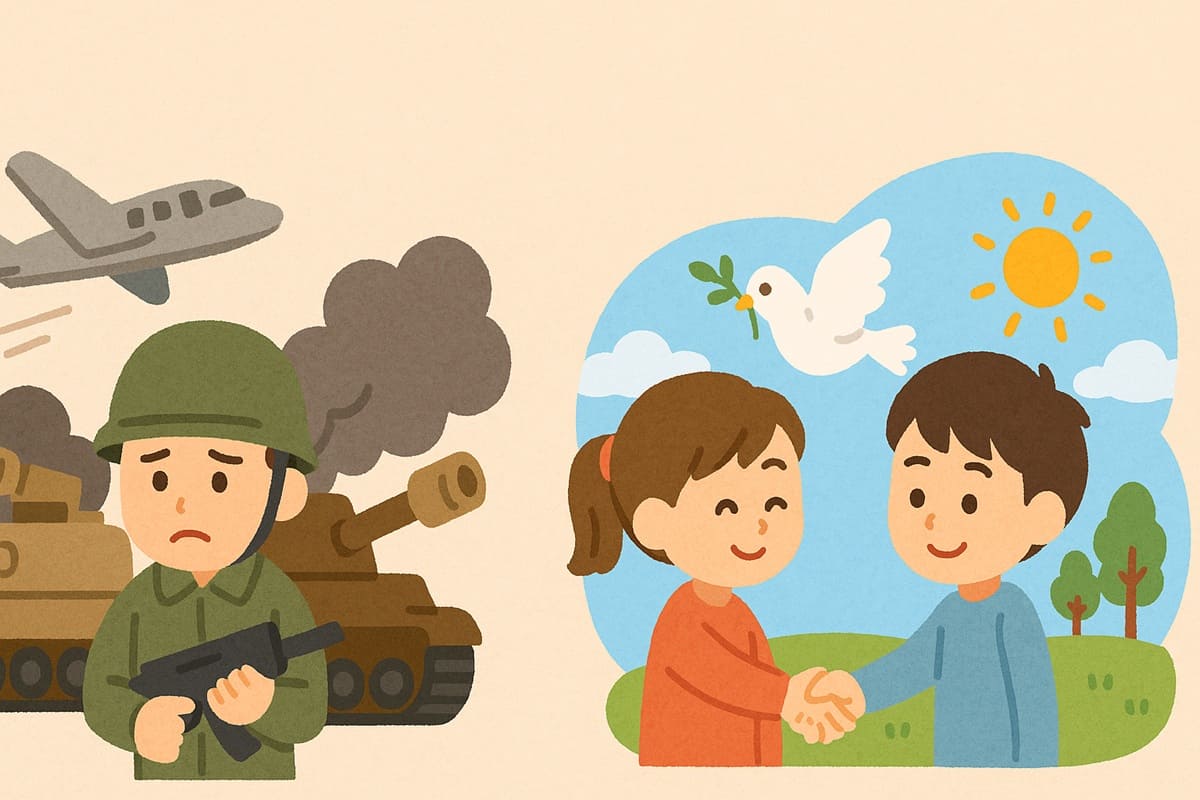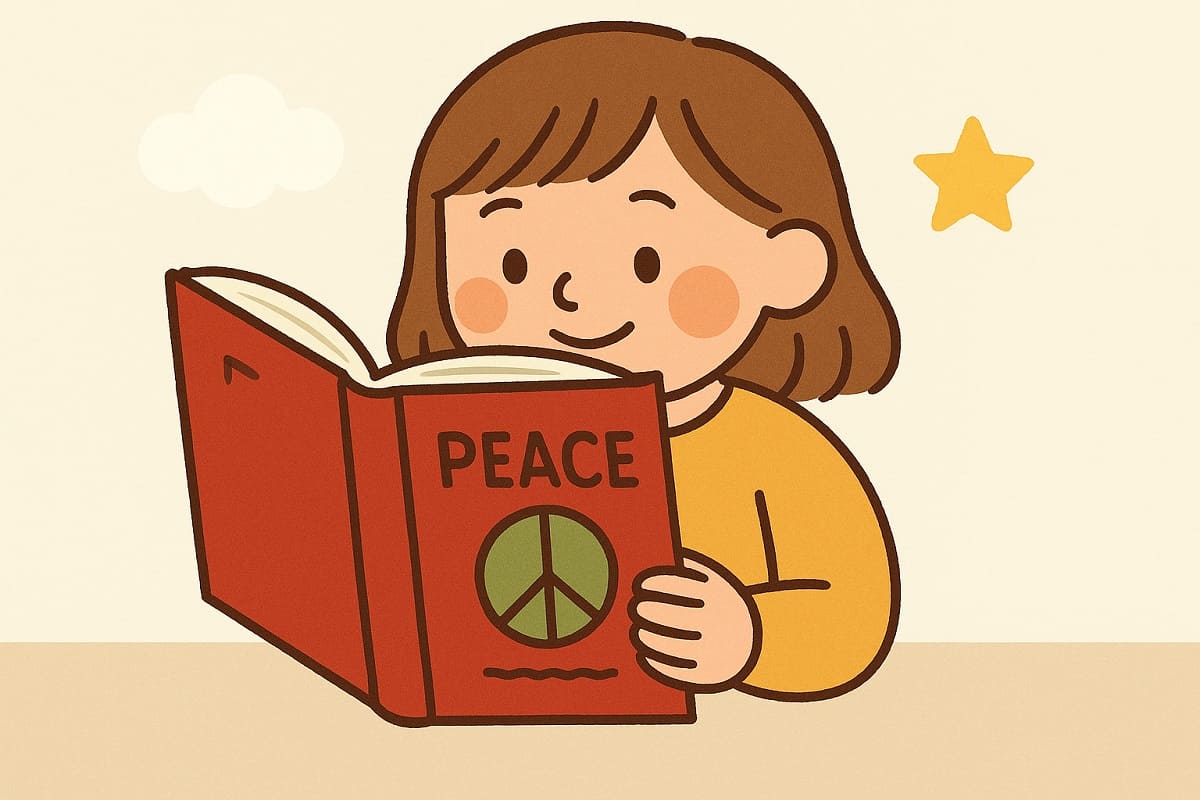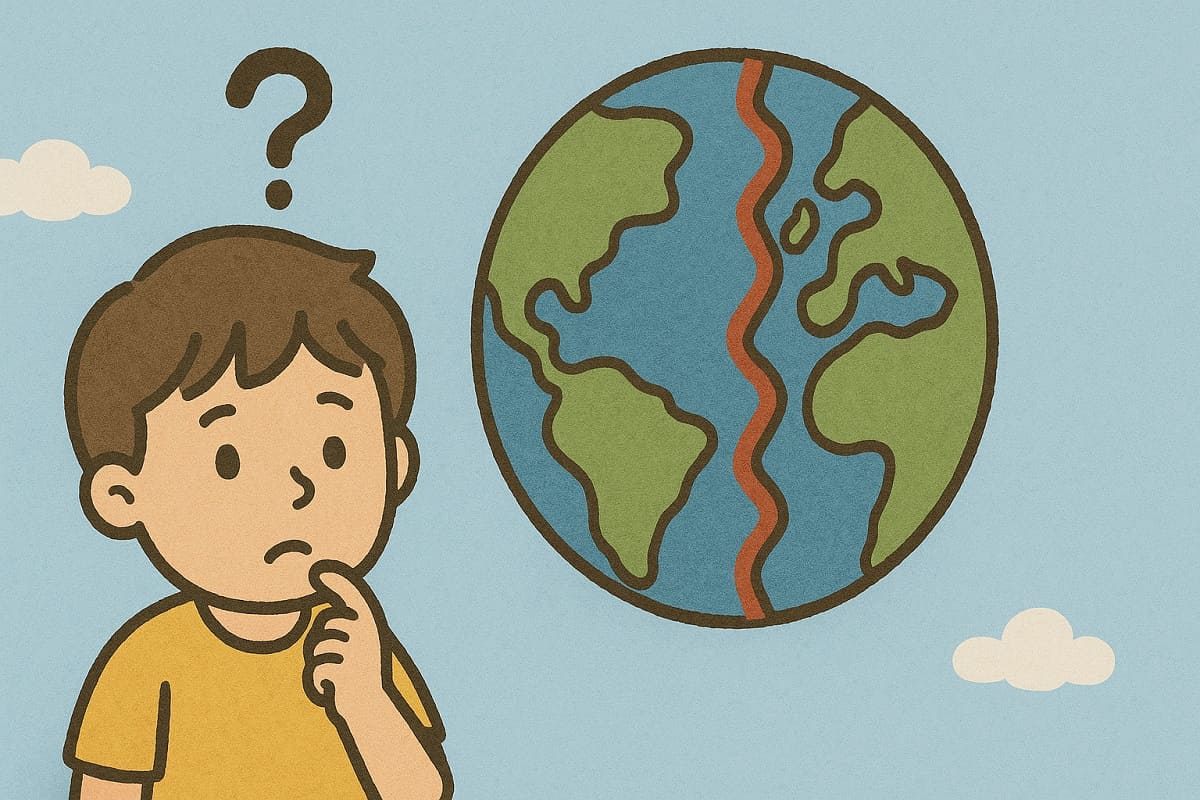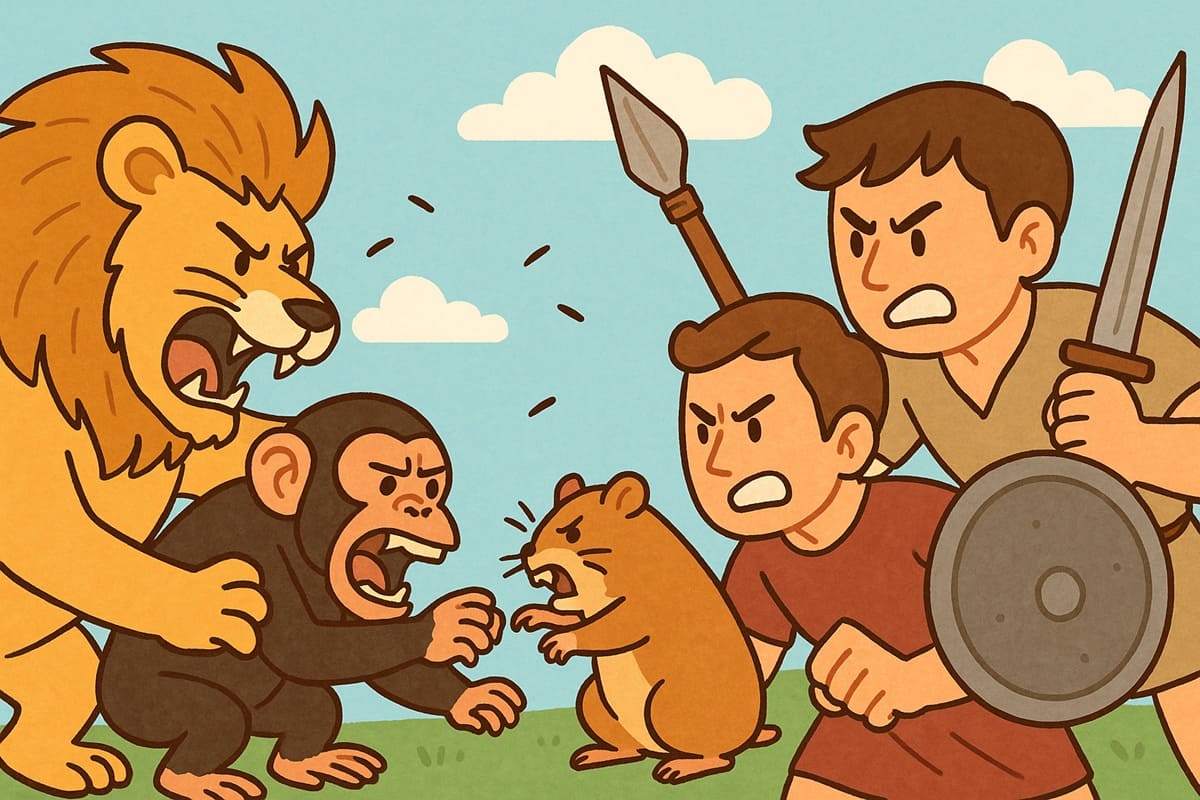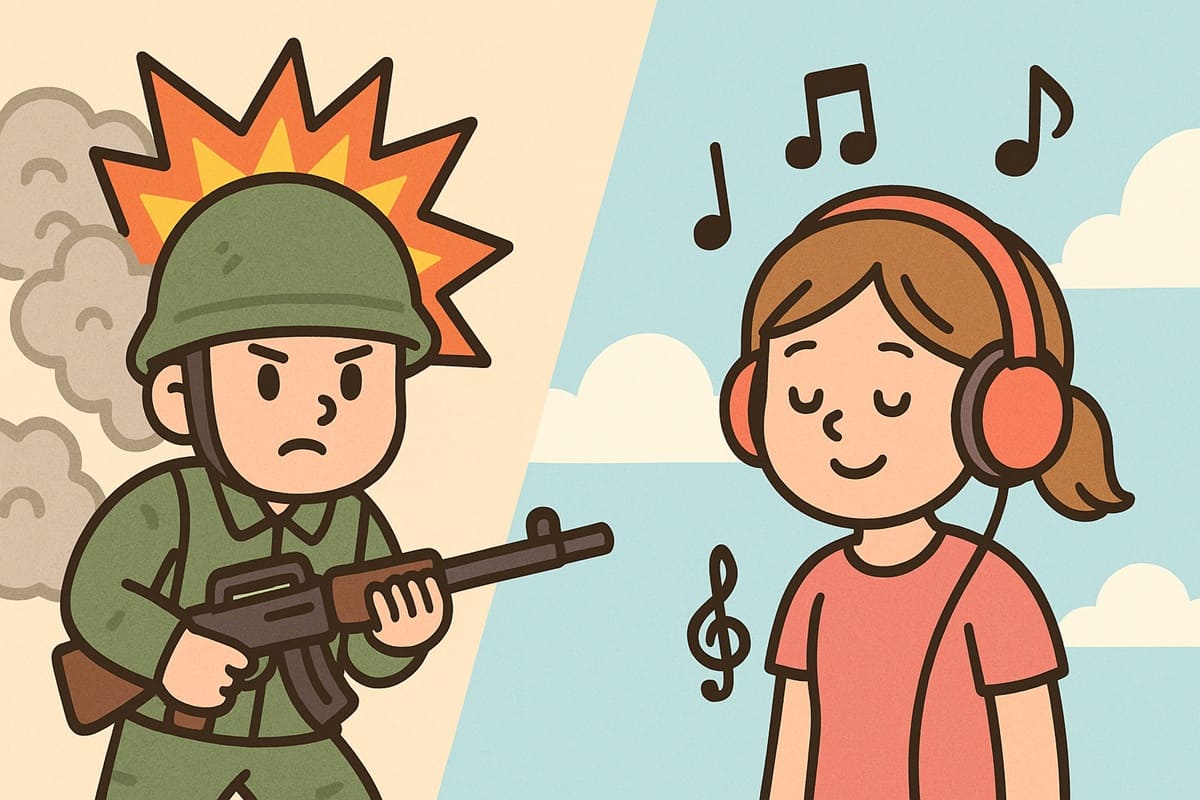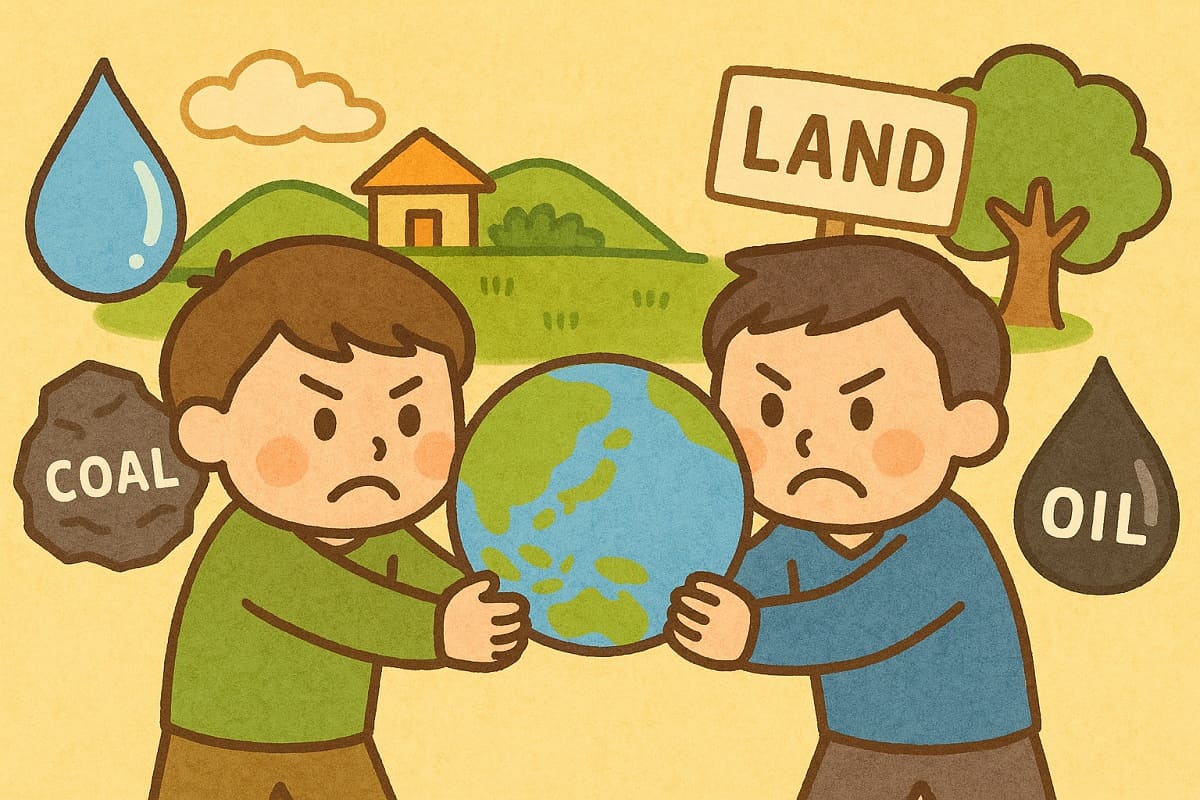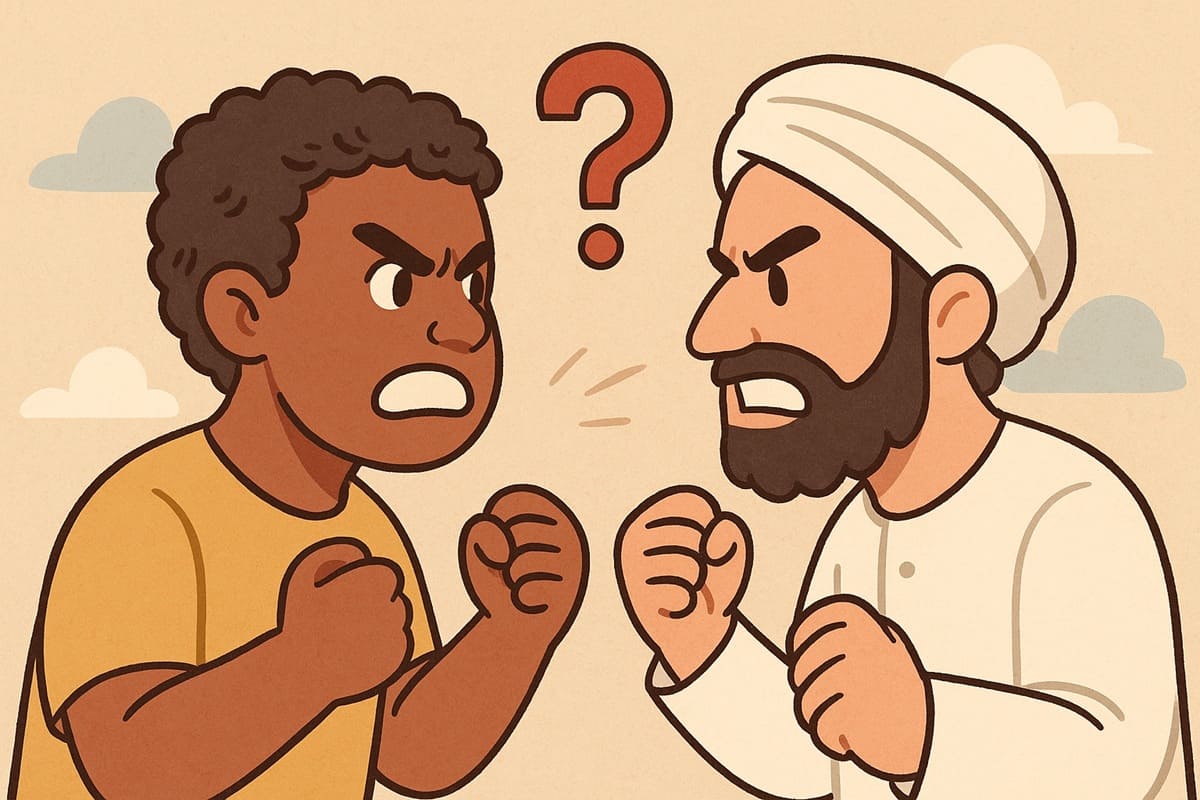Why Can People Kill in War? Understanding the Psychology of Soldiers
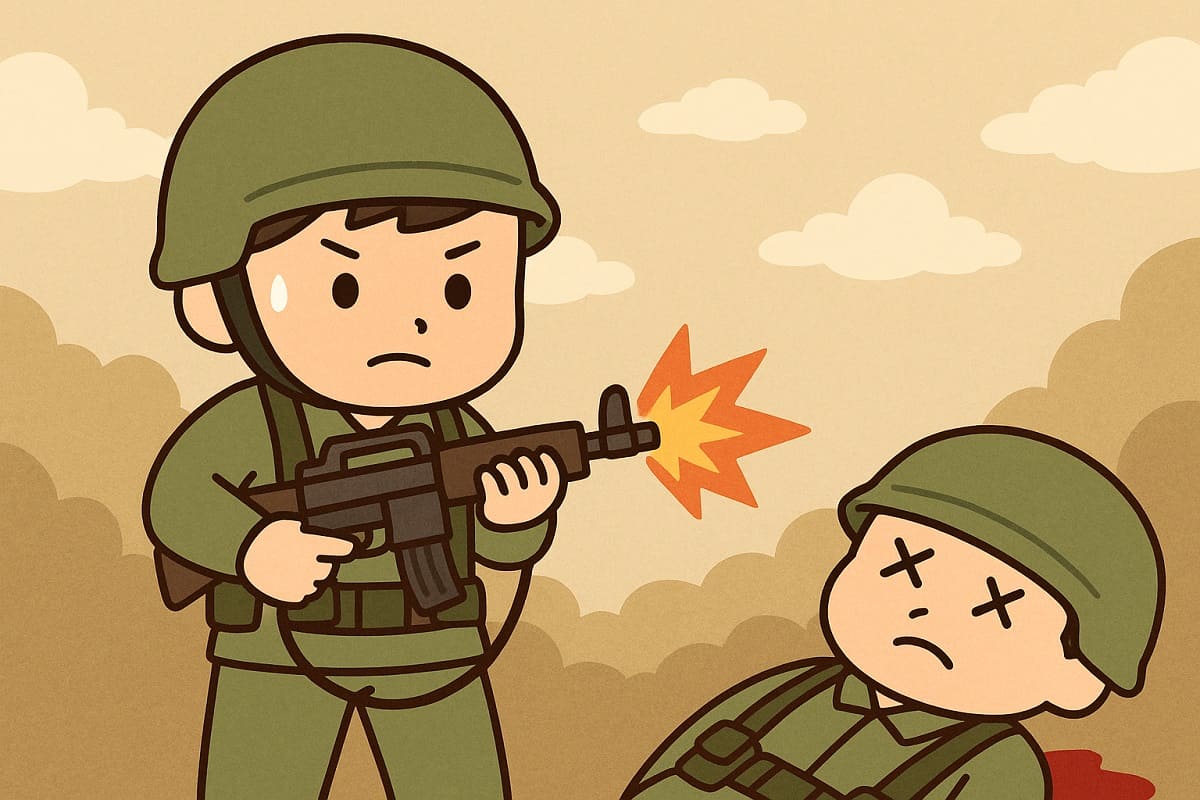
Many people have seen scenes in the news or in movies where soldiers shoot and kill enemies on the battlefield. But when we really think about it, killing another person is something that should never be done. So why does it happen in war?
In this article, we’ll explain in simple terms what kind of psychological state soldiers are in when they pull the trigger, and why such actions become possible.
Normally, People Don’t Want to Kill
In truth, most people have a strong instinctive resistance to killing others. For example, studies from the time of World War II show that many soldiers, even when carrying guns, didn’t actually fire at the enemy. When a person perceives the enemy in front of them as another human being, they often can’t bring themselves to pull the trigger.
Thinking of the Enemy as “Less Than Human”
But in war, if you hesitate like that, you could be the one who gets killed. That’s why militaries train soldiers not to see the enemy as human.
For example:
- “The enemy is an insect or a monster.”
- “That’s not a person, it’s a target.”
This kind of thinking is called dehumanization, and it helps soldiers carry out violence without feeling guilt.
I Had No Choice—It Was an Order
Another important factor is obedience to authority. In the 1960s, American psychologist Stanley Milgram conducted experiments showing that people tend to obey commands from authority figures, even if those commands go against their conscience.
In the military, orders from superiors are absolute. Even if the order is “kill that person,” soldiers are trained to think “I’m just following orders,” which makes them feel less responsible for their actions.
Fighting for Comrades, Not Just the Country
Surprisingly, one of the main reasons soldiers kill in war isn’t “for their country,” but rather “for their comrades.”
Soldiers operate in small units, living, training, and risking their lives together. In that environment, if one thinks, “If I don’t shoot, the guy next to me might die,” there’s no time to hesitate.
The idea of “shooting to protect my comrades” becomes a strong source of emotional support for soldiers.
Training Soldiers to Kill
Modern militaries provide soldiers with training specifically designed to make killing easier. For example, they practice shooting at human-shaped targets, and are taught to fire reflexively rather than with emotional hesitation.
Through this training, soldiers come to perform the act of shooting not through thought or emotion, but as a conditioned reflex. Thinking “this is just an extension of training” lowers the psychological barrier to killing.
The Psychological Wound After Killing: “Moral Injury”
After war ends, many soldiers suffer from PTSD (Post-Traumatic Stress Disorder). Sounds of bombing or images of corpses flash back in their minds, causing insomnia, anxiety, and depression.
More recently, a different concept has been gaining attention: moral injury. This refers to a deep psychological wound caused by the feeling that “what I did was morally wrong,” leading the individual to struggle with self-forgiveness.
For example:
- Accidentally shooting a civilian
- Killing an unarmed person under orders
- Realizing you felt joy when killing
Such experiences can lead to overwhelming guilt and self-hatred, which may last for years or even a lifetime.
The “Real Cost” of War
War not only takes lives, but also breaks the hearts of the survivors. Soldiers follow orders, protect their comrades, and kill to protect themselves. But afterward, they keep asking themselves, “Why did I do that?”
Even after the war ends, the battle inside a soldier’s mind may continue. This could be considered the “invisible cost” of war.
Conclusion
There are many psychological mechanisms that allow people to kill in war:
- Believing the enemy is “not human”
- Letting go of responsibility by saying “I was just following orders”
- Fighting to protect comrades
- Being trained to shoot reflexively
- Suffering deep emotional wounds afterward
Now that we live in a peaceful society, it is important for us to look closely at the emotional reality of soldiers who go to war. Asking not just “Why do wars happen?” but also “Why can people kill in war?” may be an important step toward a more peaceful future.
Main References
- Grossman, D. (2004). On killing: The psychological cost of learning to kill in war and society (Japanese ed.). Tokyo: Chikuma Gakugei Bunko.
- Litz, B. T., et al. (2009). Moral injury and moral repair in war veterans: A preliminary model and intervention strategy. Clinical Psychology Review, 29(8), 695–706.
- Milgram, S. (1974). Obedience to authority: An experimental view. New York: Harper & Row.
- Shay, J. (1994). Achilles in Vietnam: Combat trauma and the undoing of character. New York: Scribner.
- Kayama, R. (2010). Why do so many Iraq war veterans suffer from PTSD? Imidas: Knowledge & Opinion.
